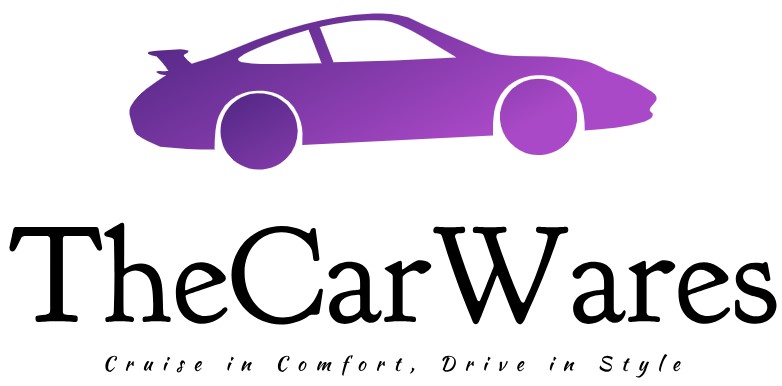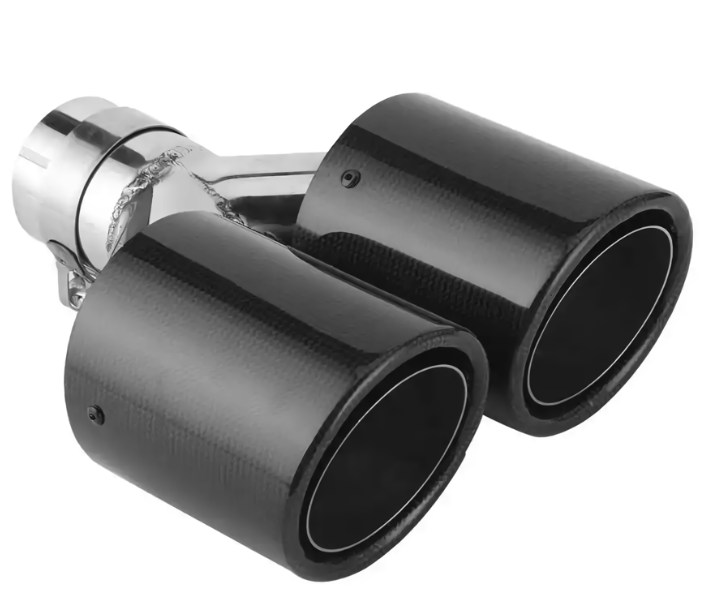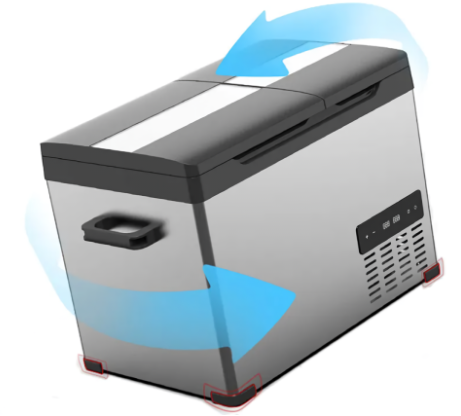Unravel the Secrets of Vinyl Car Wrap Materials and Take Your Car’s Style to the Next Level!
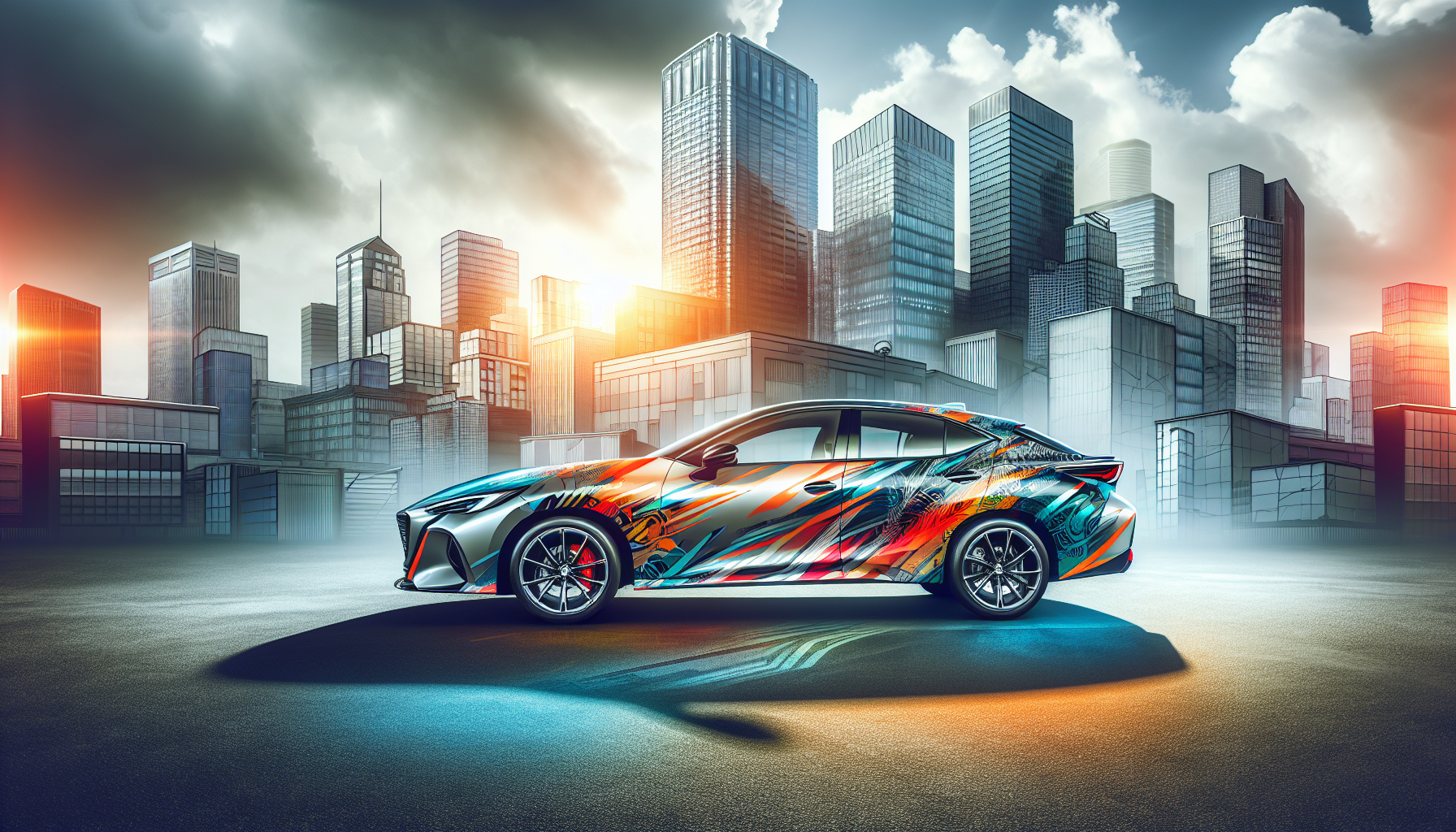
Get ready to rev up your car’s style with a stunning vinyl car wrap! Whether you’re a car enthusiast, a business owner, or simply someone who wants to add a personal touch to your vehicle, a vinyl car wrap is an excellent way to make a statement. With a vast array of designs, colors, and materials available, the possibilities are endless. But, with so many options, it’s essential to choose the right vinyl car wrap material to ensure your car looks its best. In this article, we’ll delve into the world of vinyl car wraps and explore the characteristics of the ideal material.
Choosing the right material can make all the difference in the appearance and longevity of your car wrap. A high-quality vinyl car wrap material can withstand the elements, daily wear, and tear, and maintain its vibrant colors and design for years to come. On the other hand, a low-quality material can lead to a dull, faded, and peeling wrap that’s an eyesore.
In this article, we’ll take you on a journey to discover the key characteristics of the ideal vinyl car wrap material, from durability and scratch resistance to adhesive strength and print quality. We’ll also explore the different types of vinyl materials available, including cast vinyl, calendared vinyl, and specialty materials. By the end of this article, you’ll be equipped with the knowledge to make an informed decision and choose the perfect vinyl car wrap material for your vehicle.
1. Introduction to Vinyl Car Wrap Materials
Welcome to the world of vinyl car wraps, where creativity meets customization! A vinyl car wrap is a thin, flexible layer of vinyl that’s applied to your vehicle’s paintwork, transforming its appearance and making it stand out from the crowd. With the ability to display intricate designs, vibrant colors, and bold graphics, vinyl car wraps have become a popular choice for car enthusiasts, businesses, and individuals alike.
But, did you know that the material used for your vinyl car wrap can make all the difference? A high-quality vinyl car wrap material can ensure that your design looks stunning, lasts for years, and maintains its vibrancy. On the other hand, a low-quality material can lead to a dull, faded, and peeling wrap that’s an eyesore. That’s why it’s crucial to choose the right material for your vinyl car wrap. With so many options available, it can be overwhelming, but don’t worry, we’re here to guide you through the process.
In the following sections, we’ll explore the key characteristics of the ideal vinyl car wrap material, from durability and scratch resistance to adhesive strength and print quality. We’ll also delve into the different types of vinyl materials available, including cast vinyl, calendared vinyl, and specialty materials. By the end of this article, you’ll be equipped with the knowledge to make an informed decision and choose the perfect vinyl car wrap material for your vehicle.
What is a Vinyl Car Wrap?
A vinyl car wrap is a revolutionary way to transform your vehicle’s appearance without the long-term commitment of a paint job. It’s a thin, flexible layer of vinyl that’s applied to your car’s paintwork, allowing you to showcase your personal style, promote your business, or simply add a touch of elegance to your ride. With a vinyl car wrap, the possibilities are endless – you can choose from a wide range of designs, colors, and materials to create a unique look that’s all yours.
The benefits of vinyl car wraps are numerous. Not only do they provide a cost-effective way to customize your vehicle, but they also offer a level of flexibility and versatility that’s hard to match. With a vinyl car wrap, you can change your car’s design and appearance in a matter of hours, without damaging the underlying paintwork. Plus, vinyl car wraps provide a protective layer against minor scratches and fading, helping to maintain your car’s showroom shine.
Whether you’re a car enthusiast, a business owner, or simply someone who wants to make a statement, a vinyl car wrap is an excellent way to do so. With its ability to transform your vehicle’s appearance, provide a protective layer, and offer a level of customization that’s unparalleled, it’s no wonder that vinyl car wraps have become a popular choice for many car owners.
Why Material Matters
When it comes to vinyl car wraps, the material used can make all the difference. A high-quality material can ensure that your car wrap looks stunning, lasts for years, and maintains its vibrancy. On the other hand, a low-quality material can lead to a dull, faded, and peeling wrap that’s an eyesore. That’s why it’s crucial to choose the right material for your vinyl car wrap.
The right material can enhance the appearance of your car wrap, providing a glossy finish, vibrant colors, and a smooth, wrinkle-free surface. It can also ensure that your wrap lasts for a long time, withstanding the elements and daily wear and tear. Additionally, a high-quality material can provide a protective layer against minor scratches and fading, helping to maintain your car’s showroom shine.
Conversely, a low-quality material can lead to a myriad of problems, including fading, cracking, and peeling. This can not only affect the appearance of your car wrap but also compromise its durability and longevity. By choosing the right material, you can ensure that your car wrap looks great, lasts long, and provides a level of customization that’s unparalleled. In the next section, we’ll explore the key characteristics of the ideal vinyl car wrap material.
2. Key Characteristics of the Ideal Vinyl Car Wrap Material
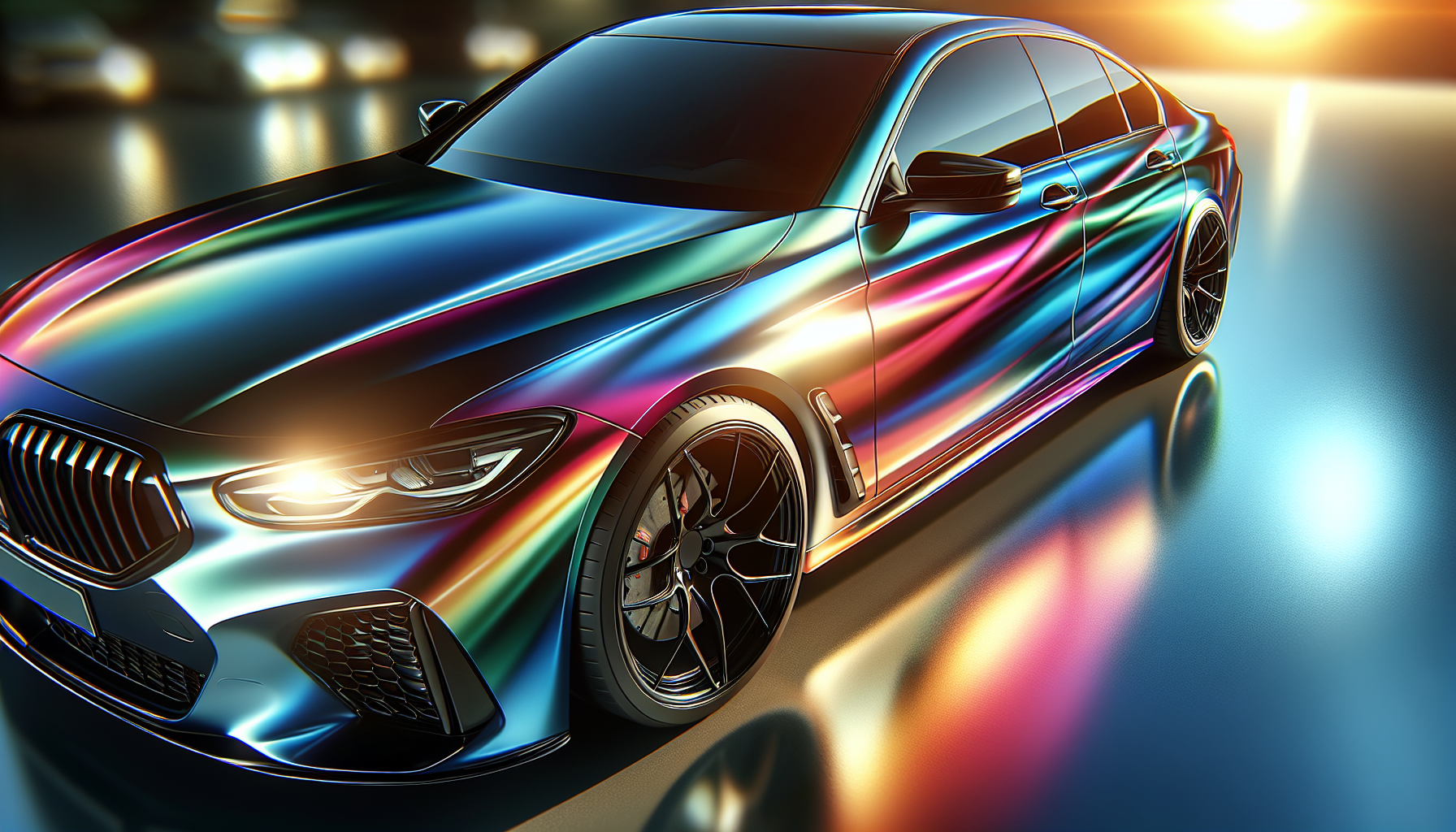
When it comes to choosing the ideal vinyl car wrap material, there are several key characteristics to look for. A top-notch material should possess a combination of features that ensure a stunning appearance, durability, and ease of installation. In this section, we’ll explore the essential features of a high-quality vinyl car wrap material.
First and foremost, a good vinyl car wrap material should be durable and resistant to scratches. This ensures that your car wrap can withstand the elements and daily wear and tear, maintaining its vibrant colors and design for years to come. Additionally, the material should have a strong adhesive that can bond well with the car’s surface, ensuring a smooth, wrinkle-free finish. A high-quality material should also provide a protective layer against minor scratches and fading, helping to maintain your car’s showroom shine.
Other important features of a top-notch vinyl car wrap material include print quality, color vibrancy, and ease of installation. The material should be able to produce high-quality prints with vibrant colors, ensuring that your design looks stunning and eye-catching. It should also be easy to install, with a simple and straightforward application process that minimizes the risk of errors and bubbles. By looking for these key characteristics, you can ensure that your vinyl car wrap material is of the highest quality and provides a professional-looking finish.
Durability and Scratch Resistance
When it comes to vinyl car wraps, durability and scratch resistance are crucial features to consider. A durable material can withstand the elements and daily wear, ensuring that your car wrap looks great for years to come. A high-quality vinyl car wrap material should be able to resist scratches, fading, and cracking, providing a protective layer that shields your car’s paintwork from damage.
A durable material can also withstand extreme weather conditions, such as UV rays, rain, and snow. This ensures that your car wrap remains vibrant and colorful, even in the harshest of environments. Additionally, a scratch-resistant material can reduce the risk of damage from minor scratches and scrapes, providing a smooth and glossy finish that looks like new.
By choosing a durable and scratch-resistant vinyl car wrap material, you can ensure that your car wrap looks great and lasts long. This means you can enjoy the benefits of a customized car wrap without worrying about the material deteriorating or losing its vibrancy over time. With a high-quality material, you can drive away with confidence, knowing that your car wrap is protected and looks amazing.
Adhesive Strength and Ease of Installation
A strong adhesive and easy installation are crucial features to consider when choosing a vinyl car wrap material. A good adhesive ensures that the wrap sticks to the car’s surface smoothly and evenly, reducing the risk of bubbles, wrinkles, and peeling. This means that you can enjoy a professional-looking finish without the hassle of reapplying the wrap or dealing with frustrating installation issues.
Moreover, a strong adhesive can withstand the elements and daily wear, ensuring that your car wrap remains in place for years to come. This is especially important for cars that are driven frequently or exposed to harsh weather conditions. With a strong adhesive, you can have peace of mind knowing that your car wrap is secure and looks great.
In addition to a strong adhesive, ease of installation is also a critical factor to consider. A material that is easy to install can save you time and hassle, reducing the risk of errors and mistakes. This means that you can get your car wrap installed quickly and easily, without the need for specialized skills or equipment. With a material that is easy to install, you can enjoy the benefits of a customized car wrap without the hassle and frustration of a difficult installation process.
Print Quality and Color Vibrancy
High-quality prints and vibrant colors are essential components of a stunning vinyl car wrap design. A good print quality ensures that the design is crisp, clear, and detailed, making it easy to admire and appreciate. With advanced printing technology, it’s possible to achieve photorealistic images and intricate designs that showcase your creativity and style.
Vibrant colors are also crucial for a stunning design, as they can add depth, contrast, and visual appeal to the wrap. A high-quality material should be able to produce a wide range of colors, from bold and bright to subtle and pastel. This allows you to choose the perfect colors to match your brand, personality, or style, making your car wrap truly unique and eye-catching.
By combining high-quality prints with vibrant colors, you can create a car wrap design that’s truly stunning and attention-grabbing. Whether you’re promoting a business, showcasing your personality, or simply wanting to add some flair to your car, a high-quality vinyl car wrap material can help you achieve your goals. With the right material, you can enjoy a professional-looking finish that’s sure to turn heads and make a lasting impression.
3. Material Types: Choosing the Right One for Your Ride
When it comes to vinyl car wraps, there are several types of materials to choose from, each with its own unique characteristics and benefits. By understanding the different types of materials, you can make an informed decision and choose the right one for your ride. Cast vinyl, calendared vinyl, and specialty materials are just a few examples of the many options available.
Cast vinyl is a popular choice for car wraps, known for its flexibility, durability, and conformability. It’s ideal for complex curves and surfaces, making it a great option for cars with intricate designs. Calendared vinyl, on the other hand, is a more cost-effective option that’s still durable and easy to install. It’s a great choice for cars with simpler designs and for those on a budget. Specialty materials, such as metallic, gloss, and matte finishes, offer a unique look and feel that can add an extra level of customization to your car wrap.
By choosing the right material for your car wrap, you can ensure a professional-looking finish that’s tailored to your needs and preferences. Whether you’re looking for a high-end look, a budget-friendly option, or a unique finish, there’s a vinyl car wrap material that’s perfect for your ride. With the right material, you can enjoy a car wrap that’s both functional and visually stunning, making it a great way to personalize your vehicle and make it stand out on the road.
Cast Vinyl vs. Calendared Vinyl
When it comes to choosing the right vinyl material for your car wrap, two of the most popular options are cast vinyl and calendared vinyl. Both materials have their own unique characteristics and benefits, making them suitable for different types of car wraps and applications. Cast vinyl is a high-end material that’s known for its flexibility, durability, and conformability. It’s ideal for complex curves and surfaces, making it a great option for cars with intricate designs.
Calendared vinyl, on the other hand, is a more cost-effective option that’s still durable and easy to install. It’s a great choice for cars with simpler designs and for those on a budget. While calendared vinyl may not be as flexible as cast vinyl, it’s still a high-quality material that can produce a professional-looking finish. One of the main differences between cast and calendared vinyl is their manufacturing process. Cast vinyl is made by casting the vinyl material onto a mold, while calendared vinyl is made by passing the material through a series of rollers.
By understanding the differences between cast and calendared vinyl, you can make an informed decision and choose the right material for your car wrap. Whether you’re looking for a high-end look, a budget-friendly option, or a unique finish, there’s a vinyl material that’s perfect for your ride. With the right material, you can enjoy a car wrap that’s both functional and visually stunning, making it a great way to personalize your vehicle and make it stand out on the road.
Specialty Materials: Metallic, Gloss, and More
Want to take your car wrap to the next level? Specialty materials are the perfect way to add a unique touch to your design. From metallic to gloss, and even matte finishes, there’s a wide range of specialty materials available to help you achieve the look you want. Metallic materials, for example, offer a sleek, reflective finish that’s perfect for cars with bold, eye-catching designs. Gloss materials, on the other hand, provide a high-shine finish that’s ideal for cars with intricate details and patterns.
But that’s not all. There are also specialty materials available that offer unique textures and effects, such as carbon fiber, brushed metal, and even wood grain. These materials can add a level of depth and complexity to your design, making it truly stand out on the road. And, with advanced printing technology, you can even combine multiple specialty materials to create a truly one-of-a-kind design.
By incorporating specialty materials into your car wrap design, you can create a truly unique and eye-catching look that’s sure to turn heads. Whether you’re looking to add a touch of luxury, a dash of excitement, or simply a unique personality to your car, specialty materials are the perfect way to take your car wrap to the next level. With so many options available, the possibilities are endless, and the results are truly stunning.
4. Conclusion: Wrapping Up the Ideal Vinyl Car Wrap Material
After exploring the world of vinyl car wraps, it’s clear that the right material can make all the difference. From durability and scratch resistance to adhesive strength and print quality, the ideal vinyl car wrap material should possess a range of key characteristics. By choosing a material that meets these criteria, you can ensure a professional-looking finish that’s both functional and visually stunning.
In addition to the key characteristics, it’s also important to consider the different types of vinyl materials available, including cast vinyl, calendared vinyl, and specialty materials. Each material has its own unique benefits and drawbacks, making it essential to choose the right one for your car wrap. By understanding the differences between these materials, you can make an informed decision and choose the perfect material for your ride.
By combining the key characteristics with the right material type, you can create a vinyl car wrap that’s truly unforgettable. Whether you’re looking to add a touch of style, promote your business, or simply make a statement, the right vinyl car wrap material can help you achieve your goals. So, take the time to do your research, choose the right material, and get ready to unleash your car’s full potential.
Takeaway Tips for Choosing the Perfect Material
When it comes to choosing the perfect vinyl car wrap material, there are a few key tips to keep in mind. First, consider the climate and environment where your car will be driven. If you live in a hot and sunny area, you may want to choose a material that’s resistant to fading and UV damage. On the other hand, if you live in a cooler and more humid climate, you may want to choose a material that’s resistant to moisture and mildew.
Next, think about the design and look you want to achieve. If you want a bold and eye-catching design, you may want to choose a material with a high-gloss finish. If you want a more subtle and understated look, you may want to choose a material with a matte finish. Additionally, consider the durability and longevity of the material. If you want a car wrap that will last for a long time, you may want to choose a material that’s known for its durability and scratch resistance.
Finally, don’t be afraid to do your research and ask for advice from a professional. Reading reviews and talking to experts in the field can help you make an informed decision and choose the perfect material for your vehicle. By following these tips, you can ensure that your car wrap looks great and lasts for a long time. With the right material, you can take your car to the next level and make it stand out on the road.
Resources for Further Learning
If you’re eager to learn more about vinyl car wrap materials, there are a wealth of resources available to help you get started. From online tutorials and guides to industry-specific websites and forums, there’s no shortage of information to help you become a vinyl car wrap expert. For example, you can check out websites like Wrap Institute, Vinyl Wrap Info, and Car Wrap City, which offer a range of resources and tutorials on vinyl car wrap materials and installation techniques.
Additionally, you can also explore online forums and communities, such as Reddit’s r/vinylwraps and r/carwraps, where you can connect with other car enthusiasts and industry professionals, ask questions, and share your own experiences and knowledge. You can also find a range of YouTube channels and videos dedicated to vinyl car wraps, offering step-by-step tutorials, product reviews, and installation guides.
By exploring these resources and tutorials, you can gain a deeper understanding of vinyl car wrap materials and installation techniques, and stay up-to-date with the latest trends and developments in the industry. Whether you’re a seasoned pro or just starting out, there’s always something new to learn, and with these resources, you can take your car wrap game to the next level.
What is the most durable vinyl car wrap material?
Cast vinyl is generally considered the most durable vinyl car wrap material, as it is more resistant to scratches and fading than calendared vinyl.
Can I install a vinyl car wrap myself?
While it’s possible to install a vinyl car wrap yourself, it’s recommended to hire a professional installer to ensure a high-quality finish and to avoid damaging your vehicle.
How long does a vinyl car wrap last?
The lifespan of a vinyl car wrap can vary depending on the material, installation, and environmental factors. On average, a vinyl car wrap can last between 5-7 years.
Can I remove a vinyl car wrap?
Yes, vinyl car wraps can be removed, but it may require some care and attention to avoid damaging the paintwork. It’s recommended to use a professional removal service to ensure a safe and successful removal.
Is a vinyl car wrap expensive?
The cost of a vinyl car wrap can vary depending on the size of the vehicle, the complexity of the design, and the material used. On average, a vinyl car wrap can cost anywhere from $500 to $5,000 or more.
